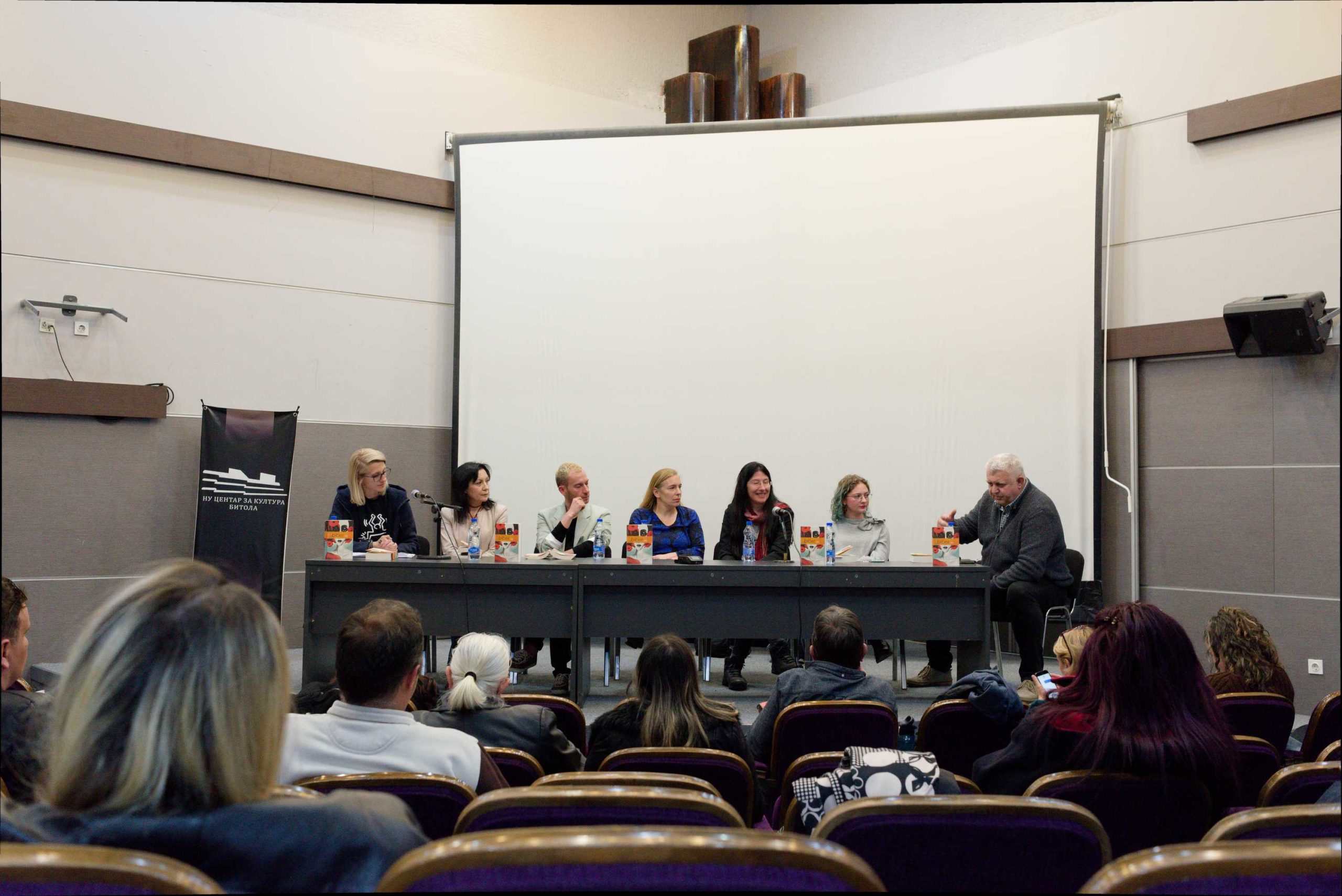The Biber 05 Contest and Short Story Collection, as well as engaged literature, reconciliation and peacebuilding, were discussed at the Cultural Centre in Bitolj on 25 April 2023. The event was organised by Peace Action Prilep/Tetovo and the Centre for Nonviolent Action Sarajevo/Belgrade.
The discussion included authors whose stories were published in the Biber 05 Collection, Sanja Mučkajeva Vidanovska from Bitolj, Amina Kaja from Pristina, and Srđan Miljević from Belgrade, jury member Kalina Maleska from Skopje, and Ivana Franović, member of the Biber Team from the Centre for Nonviolent Action Belgrade – Sarajevo.
The discussion was moderated by Dr Angelina Stanojoska.
It is clear to us as a peace organisation and the Biber Team behind the Contest that one book, or even five, cannot change the world, but it was important for us to have the authors and readers think about reconciliation. We wanted reconciliation and peacebuilding to be discussed among members of different social layers, Ivana Franović from the Centre for Nonviolent Action Sarajevo-Belgrade said about the Biber Contest.
When asked how difficult it was to select the stories for publication in the collection and the prize-winning stories, Kalina Maleska, a writer and professor from Skopje, pointed out that it was no easy task, but that together with Olja Savičević Ivančević and Lejla Kalamujić she helped select stories that speak with subtlety about the difficult topic of war.
A story about the siege from a child’s perspective, for example, doesn’t speak about war directly, but indirectly: “When this is over,” “What is happening to us…” There are moments of personal life, with the war in the background.
Sanja Mučkajeva Vidanovska from Bitolj talked about how as someone from a mixed marriage, the former Yugoslavia matters to her, its people, languages and cultural space. Still, she found inspiration for her short story in time her son spent with his peers from various countries of the region, but in the Netherlands.
All of them called me mum, and I wrote a completely true story about it, she said. I think these young people can teach us how to live today and in the future.
Although she is 21 and has no memory of the war, Amina Kaja from Pristina said the war had a powerful impact on her life and that this is why she works as an activist in various fields, in addition to studying medicine.
This is the second time I entered the contest, my story was not published the first time, but this time it was. I wanted to focus on coffee as a small family ritual, to show that when war comes, it doesn’t change the lives of politicians and decision-makers, it changes the lives of my brother, my sister, students who cannot study, doctors who cannot treat patients, ordinary people in families, and those families are forever changed after the war.
Finding it good that reconciliation was being discussed by different generations at this promotion, by people from three different countries and from different narrative approaches, Srđan Miljević also said:
“I could never understand why there should be death and why there should be war. The idea of death I’ve come to accept, the idea of war I haven’t and won’t.”
The promotion in Bitolj followed promotions in Zagreb and Petrinja, while the next will be organised in Travnik (24 May), and the sixth Biber Contest will be opened by the end of the year.
Biber is a short story contest for engaged stories in Albanian, Macedonian, Bosnian, Croatian, Serbian and Montenegrin. The theme of the contest is reconciliation in the context of the legacy left behind by the wars and violence in the countries of former Yugoslavia, which also includes stories that can contribute to better understanding among people, reducing hatred and dismantling prejudice, anti-war stories, stories about dealing with the past, deconstructing images of the enemy, about empathy, brave stories that dare walk in the “enemy’s” shoes, stories that push boundaries and open up the way to build a more stable, safer and freer future for all.
Five collections of short stories from five Biber contests have been published to date. All the stories in the collections are published in their original language, but also in translation into the other two. One selection of stories was translated into English and published in a special collection.
The electronic editions of all the collections can be downloaded for free from the Biber website.
